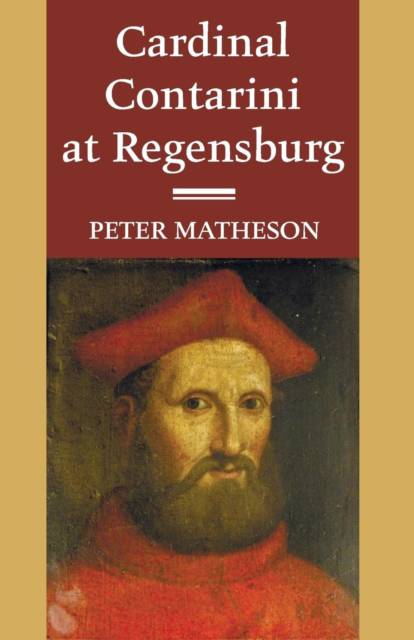
Je cadeautjes zeker op tijd in huis hebben voor de feestdagen? Kom langs in onze winkels en vind het perfecte geschenk!
- Afhalen na 1 uur in een winkel met voorraad
- Gratis thuislevering in België vanaf € 30
- Ruim aanbod met 7 miljoen producten
Je cadeautjes zeker op tijd in huis hebben voor de feestdagen? Kom langs in onze winkels en vind het perfecte geschenk!
- Afhalen na 1 uur in een winkel met voorraad
- Gratis thuislevering in België vanaf € 30
- Ruim aanbod met 7 miljoen producten
Zoeken
Omschrijving
The aim of this book is to demonstrate that the sixteenth-century "ecumenical movement," and in particular, the colloquy between Catholics and Protestants at Regensburg in 1541, was by no means an idle "dream of an understanding," doomed from the start. Contarini's campaign for reconciliation mirrors the richness and elusiveness of pre-Tridentine Catholicism. It was the clash of cultures and politics as much as purely theological considerations that led to the failure of the Regensburg colloquy. Contarini was not without sympathy for Lutheran theology until faced by the full implications of a Protestant church and a Protestant culture. He then retreated, first to a confessional Catholicism, then to an intolerant Curialism.
Specificaties
Betrokkenen
- Auteur(s):
- Uitgeverij:
Inhoud
- Aantal bladzijden:
- 193
- Taal:
- Engels
Eigenschappen
- Productcode (EAN):
- 9781498204668
- Verschijningsdatum:
- 24/09/2014
- Uitvoering:
- Paperback
- Formaat:
- Trade paperback (VS)
- Afmetingen:
- 140 mm x 216 mm
- Gewicht:
- 240 g

Alleen bij Standaard Boekhandel
+ 74 punten op je klantenkaart van Standaard Boekhandel
Beoordelingen
We publiceren alleen reviews die voldoen aan de voorwaarden voor reviews. Bekijk onze voorwaarden voor reviews.









